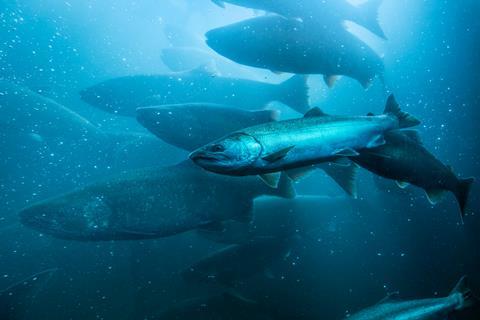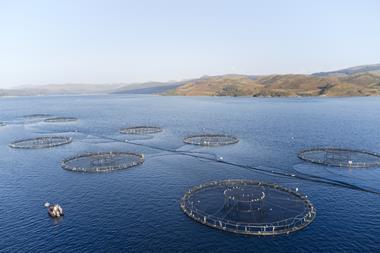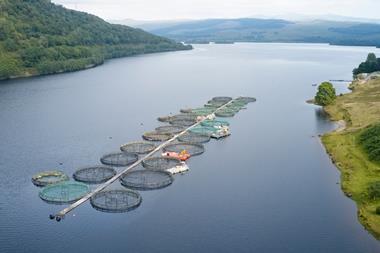
Atlantic salmon stocks in England have reached new lows, according to a new report.
According to the Atlantic Salmon Stock Assessment for 2023 from the Environment Agency and the Centre for Environment, Fisheries & Aquaculture Sciences, 90% of principal salmon rivers in England are “at risk” or “probably at risk”.
This means that salmon numbers are below minimum levels to support sustainable populations.
“Forty years ago an estimated 1.4 million salmon returned to UK rivers each year,” said Alan Lovell, chair of the Environment Agency. “We are now at barely a third of that – a new low and evidence of the wider, growing biodiversity crisis.”
Atlantic salmon is an indicator species, reflecting the health and cleanliness of marine and freshwater ecosystems, said the agency, adding that a shrinking salmon population was a warning sign that much more work was needed to improve the natural environment.
“The EA is already taking action to tackle water pollution, address barriers to migration and restore and improve habitats,” said Lovell. “We need all those who pollute to clean up their act.”
The dramatic decline of salmon stocks is an international trend, with similar findings reported in Ireland, Iceland, Sweden and Canada, however the UK shows the most significant decline.
Salmon habitats are being degraded by agricultural pollution, sedimentation and chemical runoff from industries, wastewater and roads.
There is an added concern around barriers to migration, water scarcity from abstraction and persistent challenges from climate change and warming seas.
The EA and Natural England called on everyone from landowners to farmers, to the sectors of energy, waste and water to do more to protect salmon.
“As a critical indicator species, England’s dwindling salmon population is a warning of the deteriorating health and connectivity of our waterways, and signals a threat to other wildlife species and local economies,” said Tony Juniper, chair of Natural England.
“Working in partnership to restore rivers and seas will bring widespread environmental and ecological benefits, driving broader nature recovery, which is at the heart of Natural England’s mission,” added Juniper.
The EA said it was taking action to improve regulation of water quality and the government’s new Water (Special Measures) Bill will introduce the greatest increase in enforcement powers in a decade, giving the EA more powers to hold polluters to account.



















No comments yet